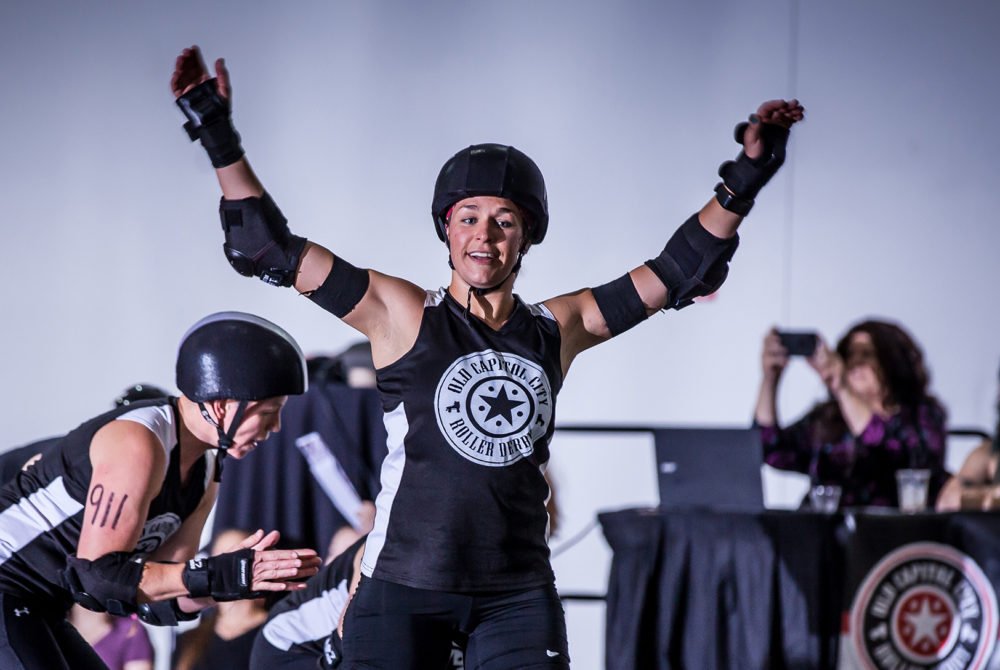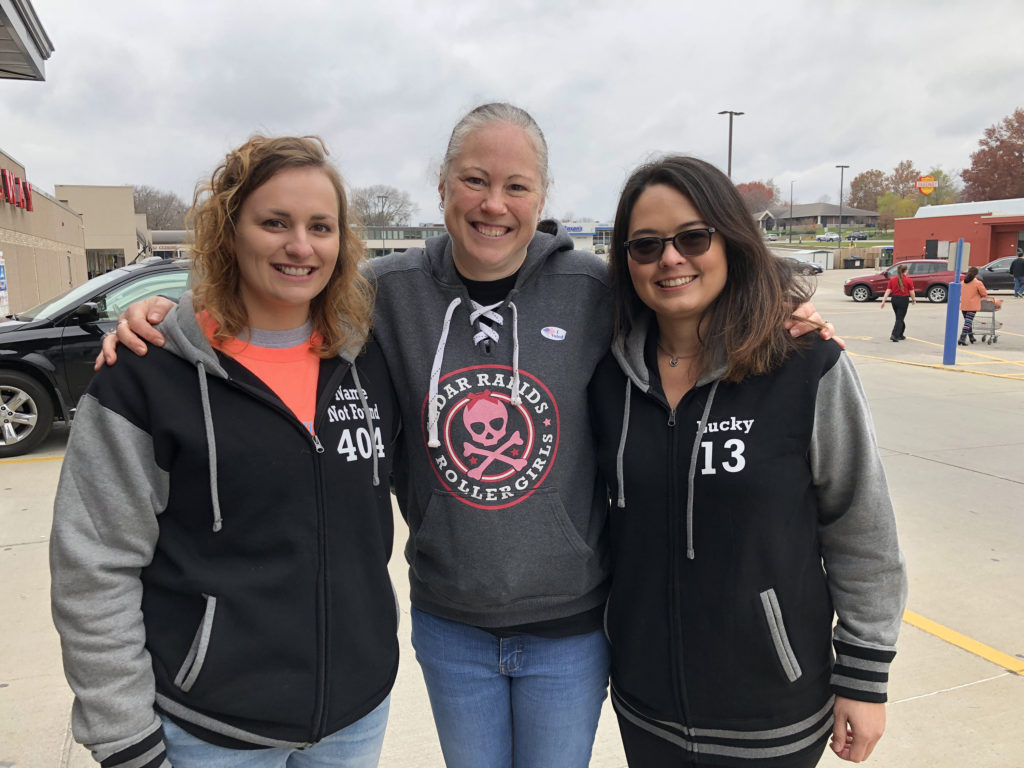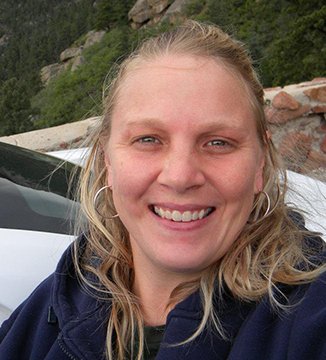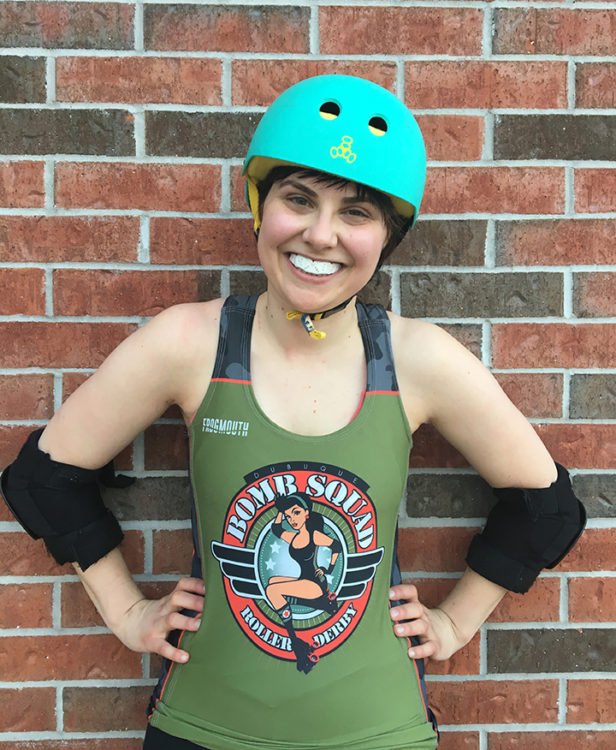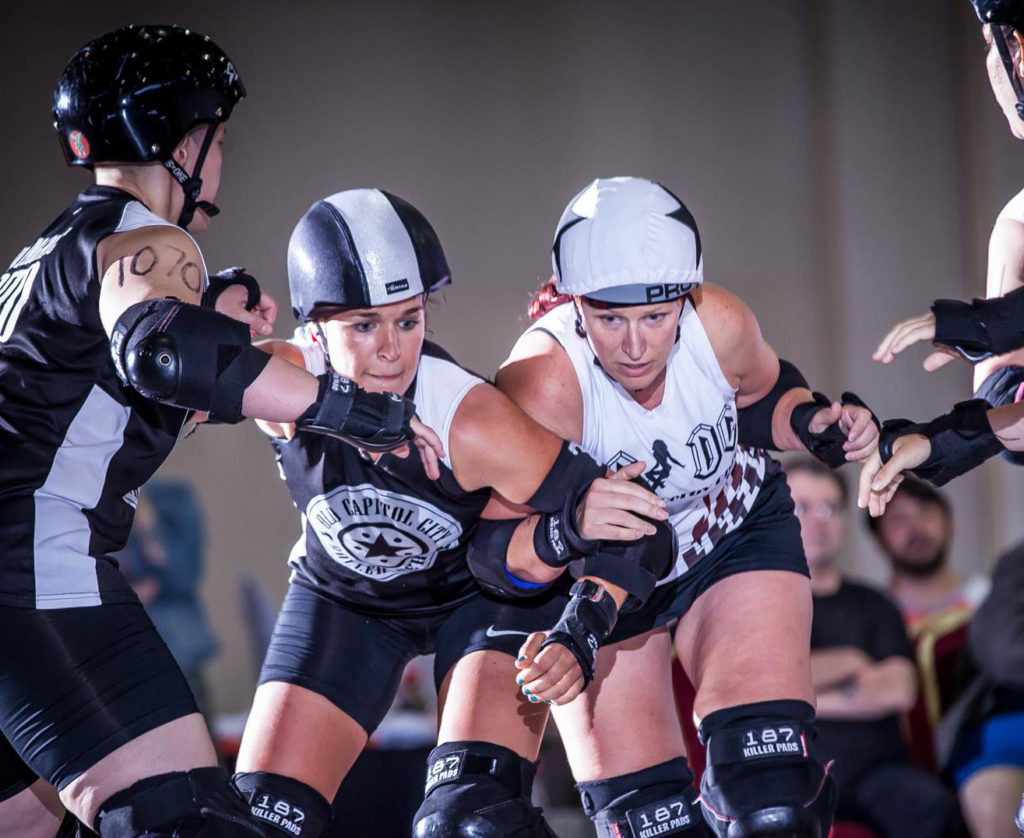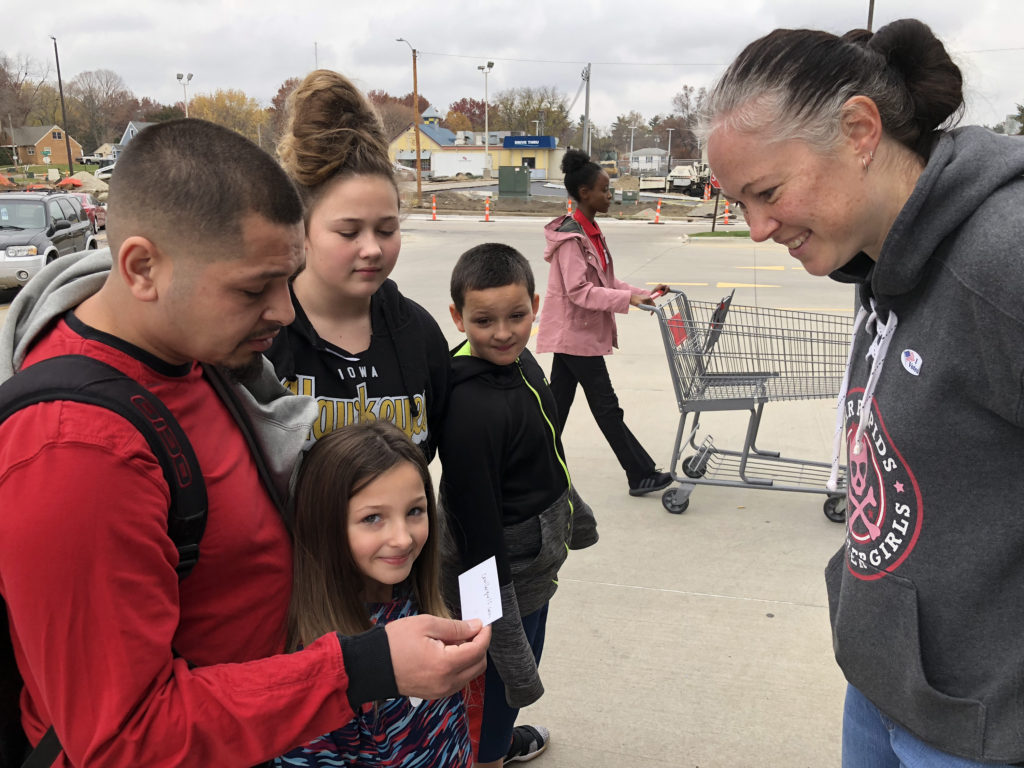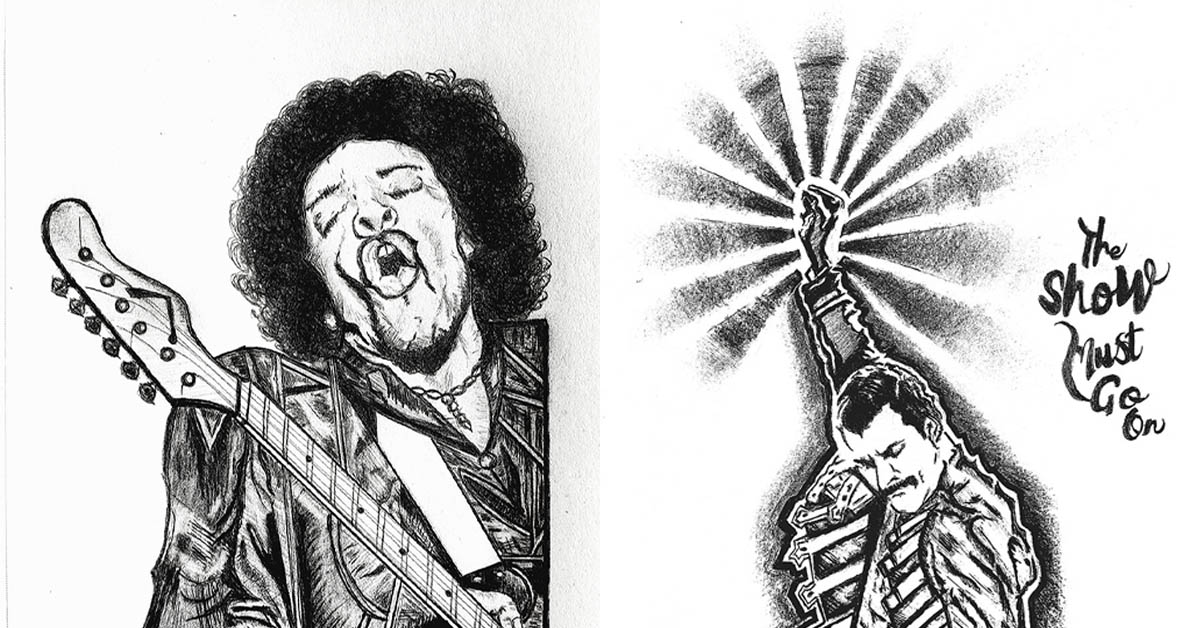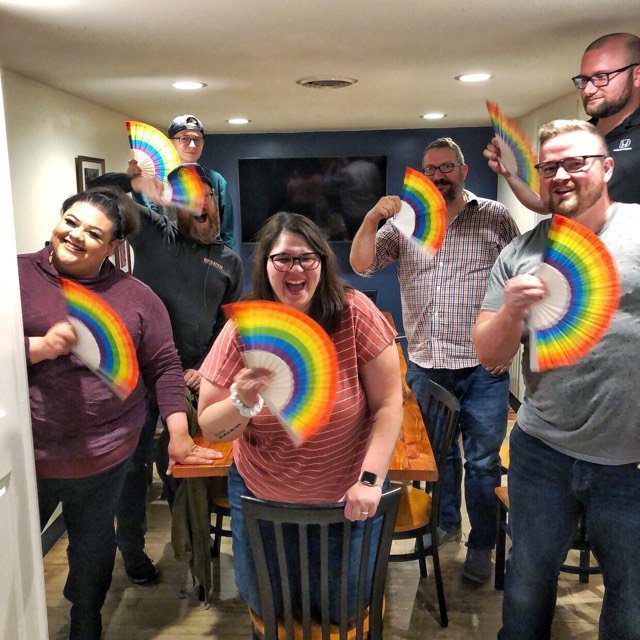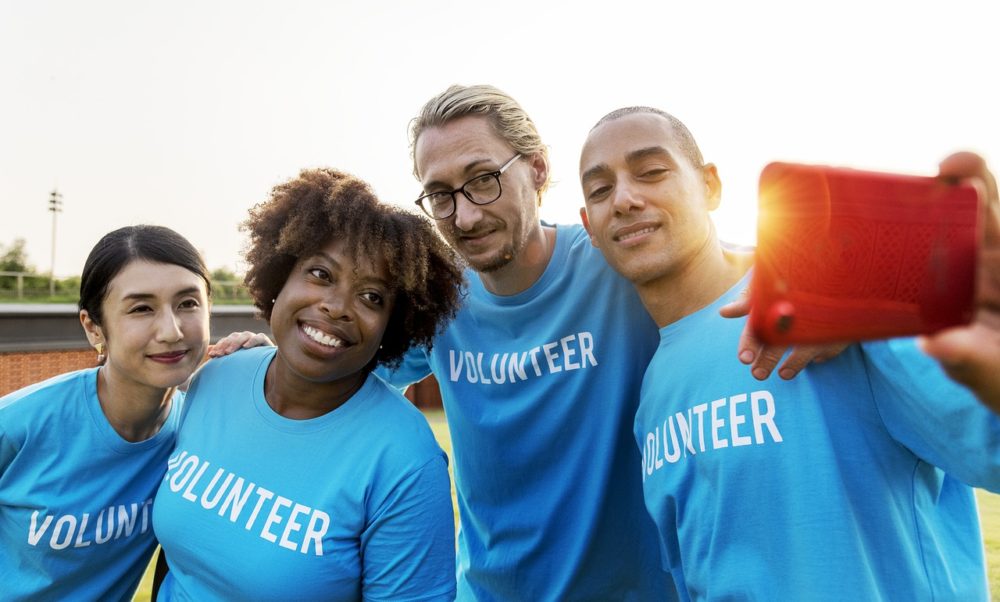IOWA CITY — Seeking out bruising physical contact, and falling and rolling around on top of each other are things normally associated with guys.
But in roller derby, the world’s fastest-growing sport and one growing in popularity throughout Iowa, women are the ones displaying this kind of non-stop physical dominance and strength. Few players illustrate that better than Hannah Wyland, the strapping jammer and player/coach/trainer for Old Capitol City Roller Derby.
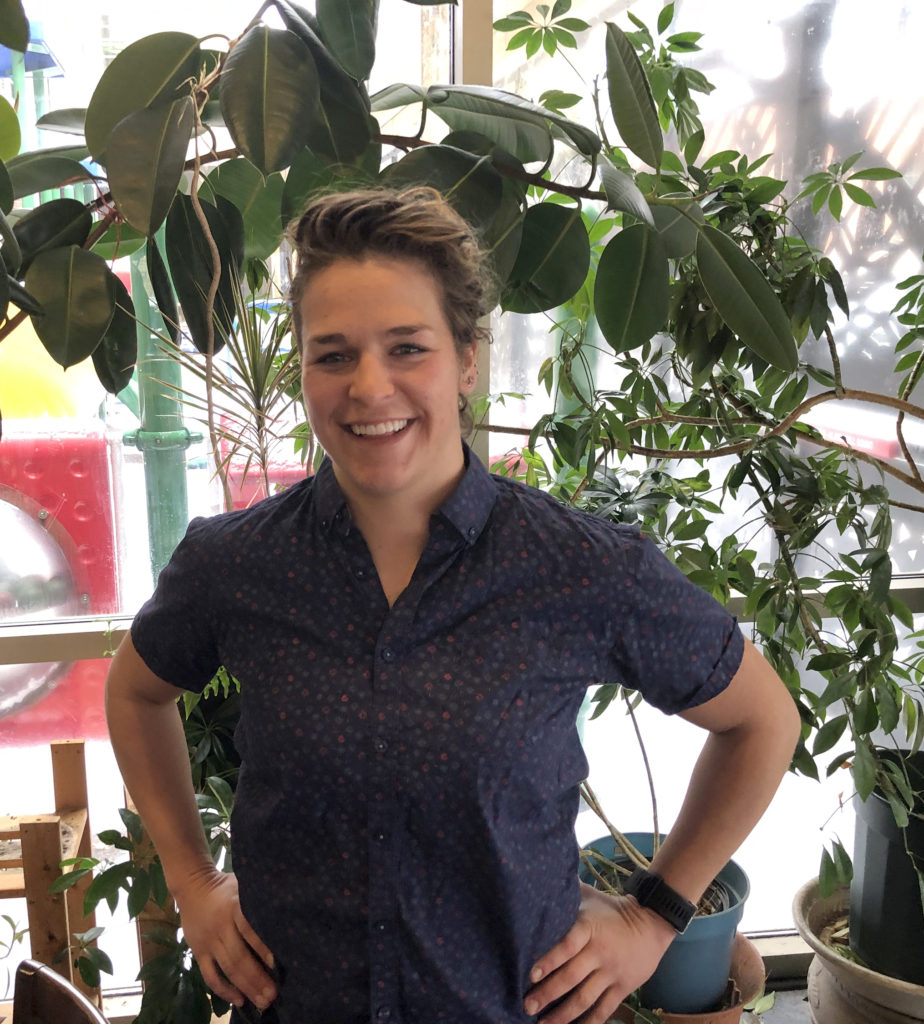
Wyland’s fancy footwork, muscular moves and speedy skating make her a standout at every match. And no wonder; she learned to swim when she was six months old, was roller-blading and cross-country skiing with her dad by age 3, and lifted weights with him for most of her childhood.
- Feb. 23: Ames Roller Derby Association versus Dubuque Bomb Squad, 5 p.m., Boone Armory, 700 Corporal Roger Snedden Dr., Boone. Find it on FB.
- Feb. 24: ICB Third Annual Craft, Maker, Vendor Fair, Noon-5 p.m., Coralville Marriott, 300 E. 9th St., Coralville
- Feb. 24: IC Bruisers 5th Annual Skate-a-Thon Fundraiser, 1-5 p.m., Coralville Marriott, 300 E. 9th St., Coralville.
- March 2: Old Capitol City Roller Derby versus River City Dames of Anarchy, 6 p.m., Coralville Marriott, 300 E. 9th St., Coralville.
- Through March 7, Mondays and Thursdays: Roller Derby 101 beginners’ course. 6-8 p.m., 5001 Old Highway Rd., Dubuque.
- March 16: Windy City Roller Derby doubleheader, 5 p.m., versus Ann Arbor Roller Derby, UIC Pavilion, 525 S. Racine Ave.
She played powderpuff football more like a padded high school footballer, her dad Mark remembers, and dealt “phenomenal tackles” when she took up rugby in college. Overall, she is a living example of what happens when a little girl is raised without any gender expectations.
It’s a quality that was also instilled in Mark, who grew up with three sisters (including 1984 Olympic swimming medalist Wendy Wyland), aunts that were self-sufficient farmers, and the understanding that “ladies were just as strong, if not stronger, than I was.”
“I never really raised my kids with any gender expectations,” he says. “And I think it’s largely because I was raised with three sisters who could do anything I could do better. They did better in school, in sports, everything. They were able to compete with me at all levels.”
Blowing away gender expectations — and all kinds of other expectations rooted in stereotypes — are at the heart of the roller derby spirit, say Wyland and several other players from throughout the state.
“I realized at some point that strength is really my thing, that strength and athleticism are part of my identity,” Wyland says. “I’m not really one of those dainty types. I was built for hitting people and playing this kind of physical sport.”
Wyland loves the chance to let her strength show unrestrained in roller derby. She chose a skater name that is all about aggressive, “wild man” energy: Phineas Rage, a play off of the famous Phineas Gage, who survived a severe brain injury to become a surly, aggressive madman.
Now is a great time for women like Wyland to join roller derby. The sport is on a roll: the number of teams worldwide has almost doubled in just one year, from 400 teams in 11 countries last year, to 700 in 25 countries this year.
The sport has gone through many phases — brutally physical in the early 1900s, devolving into silliness in the 1970s, almost disappearing through the ‘90s, and now revived thanks to a league in Texas. Now, it’s the fastest-growing amateur sport in the world.
Here in Iowa, we have three long-time teams: Iowa City, Cedar Rapids and Des Moines. New teams are starting in several teams, and another six or seven newer, recreational teams exist through the state, in Ames, Clinton, Dakota City, Dubuque, and Waterloo.
-

Nicole Sanborn, Katie Kimmich, and Lisa Jerkins of the Cedar Rapids Rollergirls. -

Janine Tellinghuisen of the Ames Roller Derby Association. -

Emma Radosevich of the Dubuque Bomb Squad -

Hannah Wyland, a team leader for Old Capitol City Roller Derby, powers through a match as a “jammer.” (photo by Danforth Johnson) -

Katie Kimmich greets a family while fundraising for the Rollergirls.
In Ames, Janine Tellinghuisen also glories in how roller derby gives her a chance to play hard. She joined the Ames Roller Derby Association four years ago after 30 years as a martial artist, and remembers gradually rediscovering her own power as she became more involved in roller derby.
“It’s a great feeling to know you’re able to throw your entire, powerful self at somebody, and they can take the hit. It makes you feel empowered, to know you have that in you.”
That feeling of discovering their power can be especially intoxicating to women for whom roller derby is their first-ever sport — and that’s a lot of women, say several team leaders. Emma Radosevich of the Dubuque Bomb Squad is among them.
She had no exposure to sports, except for a year of cheerleading, when she joined the team in 2016. after watching a bout and noticing how much fun the players had, Radosevich (skater name Lemons) decided to give it a try.
“I really liked the idea of learning how to play something that not everyone else had been playing in elementary, high school, and college. We’re almost all on an even playing field in roller derby.”
In Cedar Rapids, veteran skater Katie Kimmich (skater name Kam I. Kazi, pronounced kah-zee) is helping to lead a “regrouping” year, focused on recruitment and fundraising for the Cedar Rapids Rollergirls. “It’s a great way to bond with other females,” says Kimmich, who had just given birth when she joined the team in 2012, and sought a way to reconnect with women her age. “It’s a lot of fun, and it’s a great way to give back to the community.”
On a recent Saturday, Kimmich and new players Nicole “Name Not Found” Sanborn and Lisa “Lucky” Jerkins fielded questions from the public outside of a Fareway, generating support for their Jan. 25 Black and Blue Ball.
The mix of fans included a couple of sports-loving male adults, an elderly woman — and a family whose youngest, a girl, looked up at the RollerGirls adoringly as her father took in details of their coming year.
The camaraderie and feelings of empowerment extend beyond gender in the roller derby world. It’s one of the few sports that welcomes nonbinary and transgender individuals alongside cisgender women.
“It is a publicly queer space that exists authentically, and was intentionally created to be inclusive,” says Amanda Mosley (skater name Amandatory Sentence), another of Iowa City’s lead players. “In no other sphere have I felt unconditionally accepted for who I am.”
Tellinghuisen says the sport also transcends age boundaries.
“Judgment is taken down. If you work, if you have the determination, you’re accepted. We take away the judgment.”

